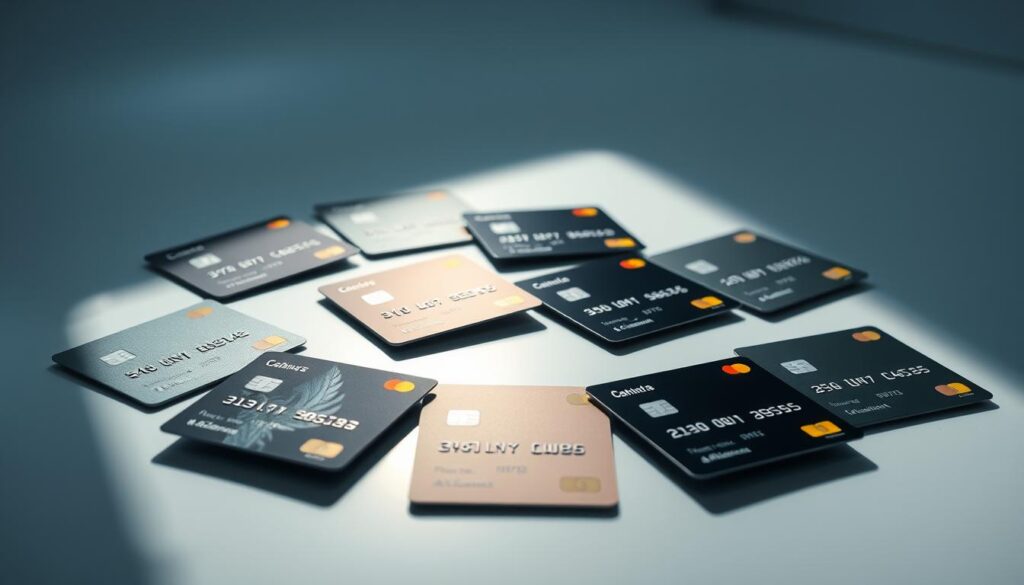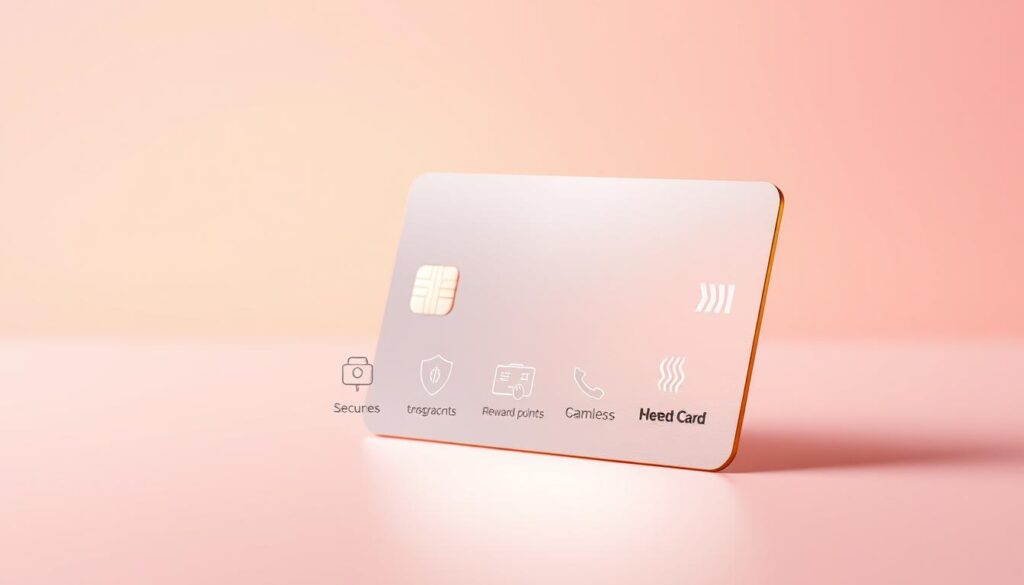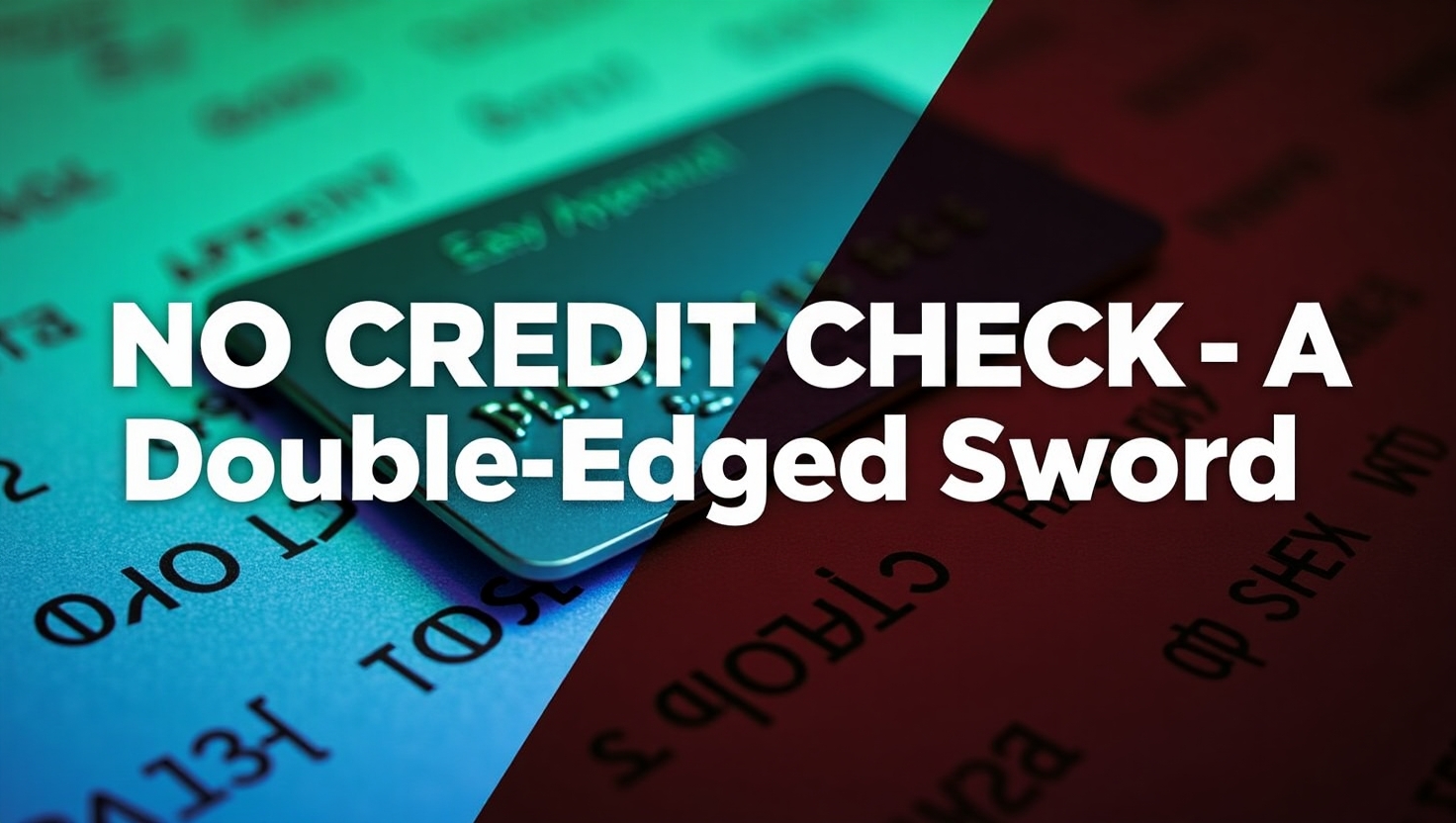
Are no credit check cards safe and reliable for building credit? Or do they carry big risks? With more alternative credit options, it’s key to know how no credit check cards affect your finances. They can be good and bad, so it’s important to think carefully before you apply.
Knowing the good and bad of ‘no credit check’ cards helps you make smart money choices. They let people with bad or no credit start building a score. But, they also have downsides like high interest and fees.
Key Takeaways
- No credit check cards can be both beneficial and risky for consumers.
- These cards offer an opportunity for individuals with poor or no credit history to establish a credit score.
- No credit check cards come with significant credit card risks, such as high interest rates and fees.
- Understanding the implications of using no credit check cards is crucial for making informed decisions about financial health.
- Why ‘no credit check’ cards are a double-edged sword is a critical question for consumers to consider before applying.
- No credit check cards require careful consideration of the pros and cons before applying.
Understanding No Credit Check Credit Cards
No credit check cards don’t need a credit check to apply. This is great for people who want to build credit or don’t have a score yet. These cards let them get credit and start building their history.
It’s key to know how no credit check cards differ from regular ones. Regular cards need a credit check and have stricter rules. But, no credit check cards might have higher rates or fees. They still offer a chance to get credit and build a credit history.
Key Characteristics of No Credit Check Cards
- No credit check required as part of the application process
- May have higher interest rates or fees compared to traditional credit cards
- Can provide an opportunity for individuals to build credit history
- May have more lenient eligibility requirements compared to traditional credit cards
No credit check cards are helpful for those wanting to build credit or don’t have a score. Knowing their features and differences from regular cards helps people choose wisely. This way, they can pick the best card for their needs.
The Appeal of Skipping the Credit Check Process

For those who have been denied credit or have low scores, skipping the credit check is tempting. Credit card advantages like easy approval and low requirements make these cards appealing. They offer a chance to start or improve credit.
But, it’s key to remember that financial responsibility is crucial. This means paying on time, keeping balances low, and avoiding too many purchases. This way, you can enjoy credit card perks without the risks.
Some benefits of skipping the credit check include:
- Easy approval and minimal requirements
- Chance to build or fix credit
- Access to rewards and cashback
It’s also vital to understand the card’s terms and conditions. This includes knowing the interest rates, fees, and credit limits.
In summary, skipping the credit check can be a smart move for those with poor credit. By being financially responsible and using credit card perks, you can improve your credit. This opens up many benefits.
| Credit Card Type | Credit Check Required | Interest Rate |
|---|---|---|
| No Credit Check Card | No | Variable |
| Traditional Credit Card | Yes | Fixed or Variable |
Common Features and Terms of No Credit Check Cards
Understanding no credit check credit cards is key. You need to know about interest rates, fees, and credit limits. These details can greatly affect your credit score and approval chances. So, it’s important to read the terms carefully before applying.
High interest rates are a big risk with these cards. They can lead to debt and harm your credit score. Even without a credit check, lenders still judge your creditworthiness. This can impact your approval chances.
Interest Rates and APR
No credit check cards usually have high interest rates, between 20% to 30% APR. This can cause a lot of debt if not managed well. It’s crucial to know the interest rates and APR before applying.
Fee Structures
These cards often come with fees like annual, late payment, and foreign transaction fees. These fees can quickly add up. They can hurt your credit score and approval chances.
Credit Limits and Restrictions
Credit limits for these cards are usually lower, from $200 to $1,000. Some cards also have usage restrictions. For example, you might not be able to get cash advances or transfer balances.
Knowing these features and terms helps you decide if a no credit check card is right for you. It can help you avoid risks that could harm your credit score and approval chances.
| Feature | Description |
|---|---|
| Interest Rates and APR | 20% to 30% APR |
| Fee Structures | Annual fees, late payment fees, foreign transaction fees |
| Credit Limits and Restrictions | $200 to $1,000, restrictions on usage |
“Learn more about how credit cards affect your financial health by visiting this comprehensive guide on understanding credit card APRs and fees from the Consumer Financial Protection Bureau.”
Why ‘No Credit Check’ Cards Are a Double-Edged Sword: The Benefits

“No credit check” cards offer a chance to build credit history. This is great for people with low credit scores or those who’ve been turned down for credit before. Using these cards wisely can help you start building a good credit record. This can open doors to better financial opportunities later on.
These cards also encourage financial responsibility. They often have higher interest rates and fees. This pushes people to pay on time and keep their balances low. It’s a way to learn good money habits for the long run.
Some of the main perks of “no credit check” cards are:
- Opportunity to build credit history
- Promotes financial responsibility
- Provides a second chance for individuals with poor credit scores
- Can be used to establish a positive credit history
It’s important to use “no credit check” cards wisely. This means paying on time, keeping balances low, and avoiding extra fees. By doing this, you can enjoy the benefits while avoiding the downsides.
Hidden Risks and Potential Pitfalls
Before getting a “no credit check” credit card, know the credit card risks. These cards can hurt your credit score, making it hard to get credit later. It’s important to read the fine print to avoid problems.
The credit card approval probability might be lower than you think. To stay safe, check the card’s terms, like interest rates, fees, and limits. Some “no credit check” cards have:
- High interest rates and fees
- Low credit limits
- Strict repayment terms
Missing payments can lead to long-term credit consequences. Think about the benefits and risks. Look for other ways to build your credit. Being smart and careful can help you use these cards without trouble.
Be careful with “no credit check” credit cards. Weigh the good and bad sides. This way, you can choose wisely and protect your credit history.
| Card Type | Interest Rate | Fees | Credit Limit |
|---|---|---|---|
| No Credit Check Card | 20-30% | $50-$100 | $500-$1000 |
| Traditional Credit Card | 10-20% | $20-$50 | $1000-$5000 |
Alternative Options for Building Credit
There are many ways to build credit history besides traditional credit cards. You can try secured credit cards, credit-builder loans, or become an authorized user on someone else’s account.
These credit card options help you start or boost your credit scores. This is key for financial responsibility. Here are some alternatives to think about:
- Secured credit cards: Need a deposit, which sets your credit limit. They help build credit with on-time payments.
- Credit-builder loans: Made to help build credit, these loans let you show you can handle payments.
- Becoming an authorized user: Getting added to someone’s account can help your credit. Their payment history shows up on your report.
It’s important to look at the pros and cons of each option. Pick the one that works best for you. By trying these alternatives, you can start building credit history and become more financially responsible.
Making an Informed Decision: What to Consider Before Applying
Before getting a “no credit check” credit card, think about your money situation. Look at your income, expenses, and debts. This helps you see if you can handle more credit. Financial responsibility is key to avoid credit risks that can hurt your credit score.
It’s also important to read the credit card agreement carefully. Know the interest rates, fees, and how you’ll pay back the money. This way, you can avoid getting into too much debt. Remember, your credit history is important for getting credit in the future.
Here are some key factors to consider when evaluating a “no credit check” credit card:
- Interest rates and fees
- Credit limits and repayment terms
- Customer service and support
- Any additional benefits or rewards
By looking at these factors and thinking about your finances, you can decide if a “no credit check” credit card is good for you. Always be financially responsible and watch out for credit risks that can damage your credit score.
Knowing your rights as a consumer is also important. Learn about laws that protect you from unfair credit practices. Being informed and responsible helps you use credit cards wisely and avoid problems.
| Factor | Consideration |
|---|---|
| Interest rates | Understand the APR and how it affects your payments |
| Fees | Know the types of fees associated with the card and how to avoid them |
| Credit limits | Understand your credit limit and how it can impact your credit utilization |
Tips for Responsible Card Usage
Using credit cards wisely is key to financial responsibility. This means paying on time and not using too much credit. Doing this helps you build credit history and get a good credit score.
When looking at credit card options, keep these tips in mind for using them well:
- Make payments on time to avoid late fees and negative credit reporting
- Keep credit utilization below 30% to demonstrate responsible credit behavior
- Monitor credit reports regularly to detect any errors or suspicious activity
Following these tips helps you manage your credit cards well. Remember, building credit history takes time and effort. But it’s crucial for long-term financial responsibility.
Conclusion: Balancing Opportunity with Risk
“No credit check” credit cards seem like a great chance for those with bad credit to get financial tools. But, they also have risks and pitfalls that people need to watch out for. The ease of not having to check credit might look good, but it’s important to think about the long-term effects on your money.
Choosing to get a “no credit check” card is a big decision. People should really think about their money situation, know what the card offers, and look at other ways to build credit. By making smart choices and using these cards wisely, you can enjoy the benefits without the downsides.
Quantum Computing & Credit Card Security : Quantum computing is becoming more common. It’s important to think about how it might affect credit card security. Quantum computers could break current encryption, putting credit card data at risk. read more about it from here – Quantum Computing & Credit Card Security: Will Your Data Stay Safe?
Why ‘No Credit Check’ Cards : FAQ
What defines a “no credit check” credit card?
A “no credit check” credit card doesn’t need a credit check to approve you. They’re for people with bad or little credit history. This makes it easier for them to get credit.
How do “no credit check” cards differ from traditional credit cards?
“No credit check” cards don’t need a credit check. Traditional cards do. They also have higher interest rates, fees, and lower limits than regular cards.
Who are the typical users of “no credit check” credit cards?
These cards are for people with bad or little credit. This includes those who’ve been turned down for credit before or are just starting out.
What are the common features and terms of “no credit check” credit cards?
These cards have high interest rates and lots of fees. They also have lower limits than regular cards.
What are the benefits of “no credit check” credit cards?
They let people with bad or little credit start or improve their credit history. Using them responsibly can help build financial skills and better credit scores.
What are the risks and potential pitfalls of “no credit check” credit cards?
The risks include high interest rates, lots of fees, and low limits. They can also harm your credit if not used wisely.
What are some alternative options for building credit?
Options include secured cards, credit-builder loans, and being an authorized user. These might offer better terms for building credit than “no credit check” cards.
What should I consider before applying for a “no credit check” credit card?
Think about your financial situation and read the fine print before applying. Understand your rights and use the card wisely to avoid credit harm.
What are some tips for using “no credit check” credit cards responsibly?
Pay on time, keep your balance low, and check your credit report often. Use the card to build credit, not for spending too much.








1 thought on “Why ‘No Credit Check’ Cards Are a Double-Edged Sword”